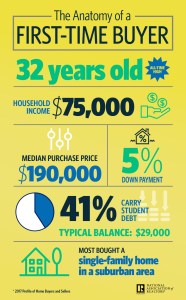
Last year, at the height of the latest sellers’ market, I talked to a friend about selling his property. He gleefully quipped “Haven’t you heard? Nobody uses a real estate agent anymore [to sell a home].” To be honest, I hear that every seller’s market…and it’s a false statement. In fact, most home sellers hire a real estate agent to sell or buy a home. So, in response I asserted that Real estate agents have a role in the real estate transaction.
The National Association of Realtors’ 2021 Profile of Homebuyers and Sellers indicated that 90 percent of home sellers hired a real estate agent. The reasons for hiring an agent to list your home apply in any market, and include assisting you to set the list price, to prepare the home, and to facilitate the sale process.
Setting the right sale price is important in any market. During a sellers’ market, it may be tempting to set a high sale price. But the fact is that you can still turn off home buyers with an unrealistic price. A real-life example comes from a listing appointment I had last year. The seller was disappointed in the price range I suggested for her home (her home was smaller than other homes in the neighborhood). She was clearly dissatisfied with what I shared and said, “In this market, all homes sell for more than the last one that sold.” This is also a false statement. In a market where homes sold on average 7 days, she wasted 30 days on the market only to sell for a price that was in the range I suggested based on comps and adjustments.
Home preparation is also a key factor in any market. Home preparation entails decluttering, staging and sometimes repairs. Let’s face it, the better the home presents, the quicker it sells. In a seller’s market, a well-prepared home can elicit a bidding war, raising the sale price above list price.
Hiring a real estate agent is not for everyone. But the stats revealed by NAR’s 2021 Profile of Homebuyers and Sellers indicate that real estate agents have a role in the real estate transaction. Real estate agents are housing-market experts, recognizing and anticipating trends. Agents can provide detailed market analyses to assist in formulating a home’s listing or sale price.
Furthermore, from the time your home is listed to the day of settlement, agents are facilitating the transaction. Starting with marketing your home, the agent will work to procure offers on your home and assist in negotiation. They will also assist in helping completing the sales contract and follow up on contingencies. They will also work alongside other professionals to ensure any bumps in the journey to settlement are worked out.
By Dan Krell
Copyright © 2022

Disclaimer. This article is not intended to provide nor should it be relied upon for legal and financial advice. Readers should not rely solely on the information contained herein, as it does not purport to be comprehensive or render specific advice. Readers should consult with an attorney regarding local real estate laws and customs as they vary by state and jurisdiction. Using this article without permission is a violation of copyright laws.




